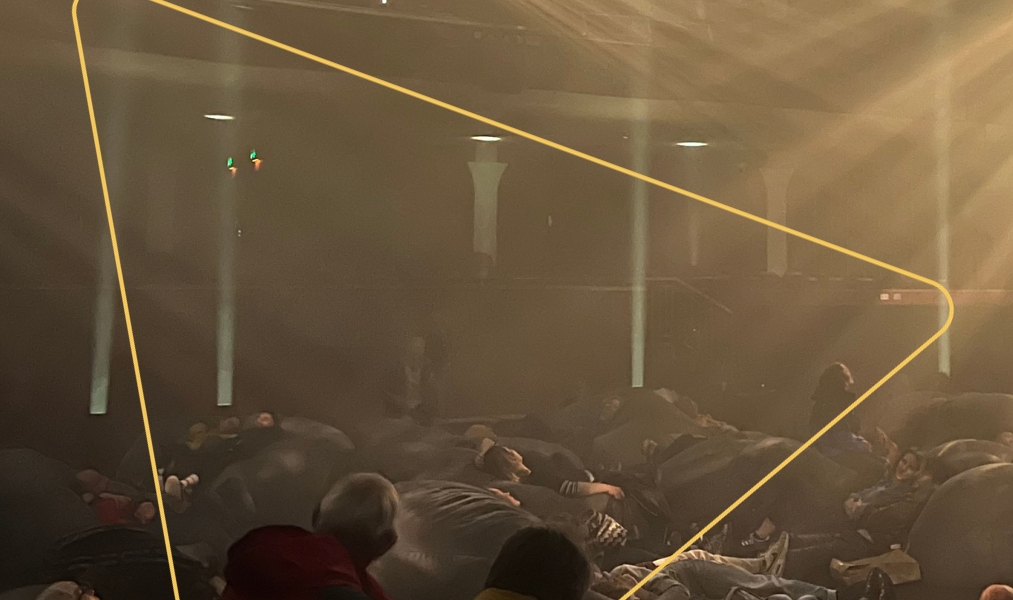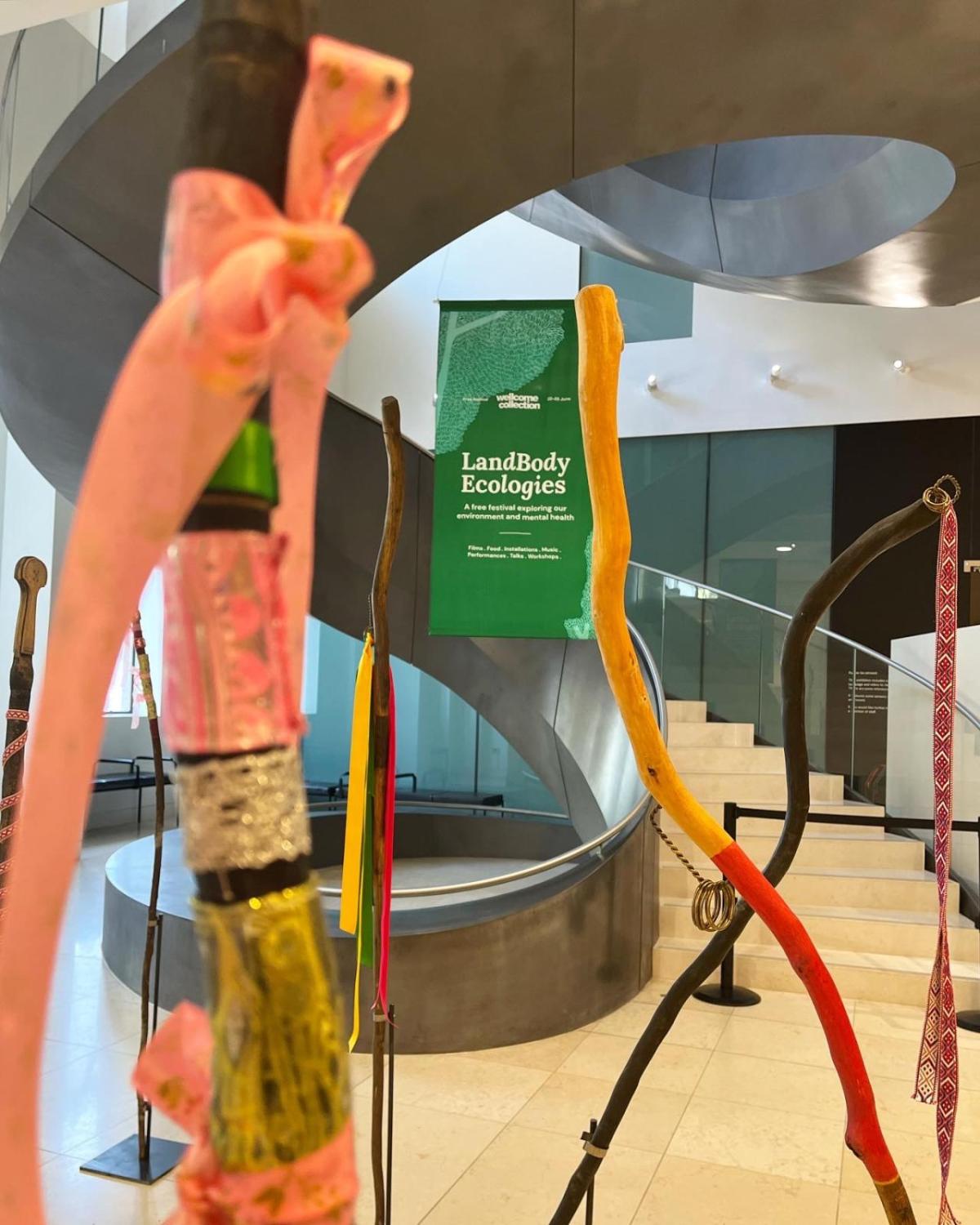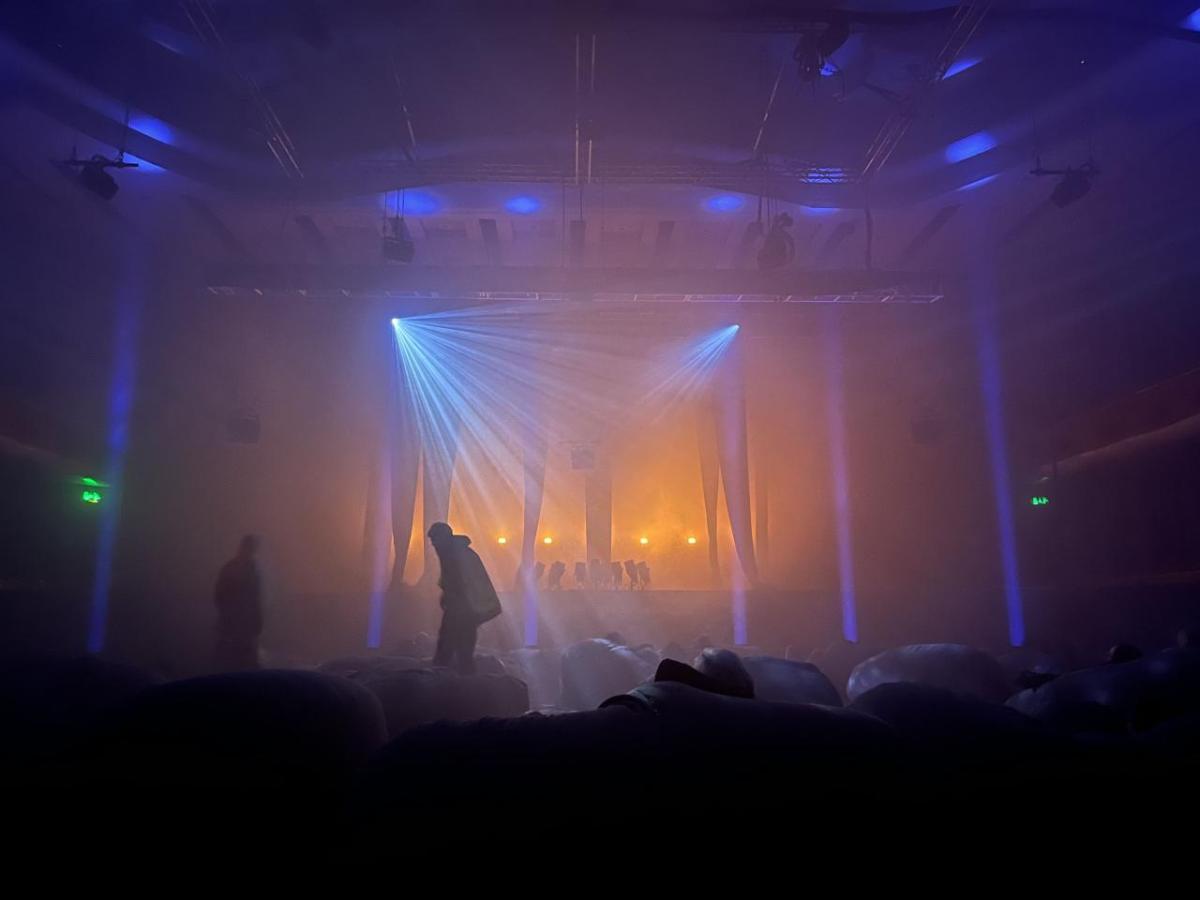Faces of Acre: Invisible Flock • Ellen Rutherford
Behind every impactful role we place, every team we build and every effort we make to create systemic change for our planet and society by activating people’s potential; lies our team of passionate, sustainability-minded individuals. Our ongoing ‘Faces of Acre’ series helps us take a step back from the day-to-day to shine a spotlight on the people who make us who we are, giving them a platform to share their passions, speak up about important topics and talk about the pro bono initiatives they take part in.
In our latest instalment, we sat down with Ellen Rutherford, Acre’s Managing Director in the Americas. She is Chair of Invisible Flock, an interactive award-winning artist-led arts studio based at both the Yorkshire Sculpture Park and the Hub at Wellcome Collection, in London.
While Oscar Wilde raised the notion that life imitates art, in that it affects the way we see the world, Invisible Flock has taken that concept one step forward by creating an intersection between art, technology and the climate crisis.
The not-for-profit organisation explores the environmental crisis through digital art practices raising awareness of the importance of sustainability and social issues. The studio focuses on a diverse range of people – how we live, connect and share to thrive as a global society more harmoniously, via art forms exploring the environmental crisis to support those vulnerable to the world’s greatest challenges.
Recent work includes LBE (Land Body Ecologies), a two-year project uniting artists with mental health researchers, scientists and human rights activists to research ‘solastalgia’, a newly coined phrase meaning to accept that the presence of climate change impacts on human health.
There is also an award-winning sound installation Microtonal exploring stories, cultures and land from the notes between western chromatic scales. The project Bodies Joined, created for the World Health Organisation’s Health Pavilion COP27, highlights how climate change and environmental factors impact human health, while Aurora implemented the re-flooding of a disused reservoir in Liverpool to create a multi-sensory installation.
Ellen has worked for Acre since July 2021, previously working in the non-profit sector.
So, Ellen, how did you initially connect with Invisible Flock?
I knew Victoria Pratt, one of the founders and the Creative Director from university. Victoria approached me when they were setting up the board due to my work on government contracts (they are Arts Council-funded) and my understanding of non-profit governance plus, helpfully, my interest in the arts and sustainability.
How does Invisible Flock connect with sustainability and a better future for all?
The environmental crisis is explored in all its forms and I think, most crucially, they use the platform gained through the beauty and poignancy of their work to give a voice to those most impacted by the climate emergency. One of the things I find most impressive is how they use artistic practice to unite people in the fields of research, those at the frontline of conservation, government bodies, and those most impacted by climate change. Their position as artists and storytellers gives them a unique licence to do this.
Do you think digital artwork creates greater impact than other forms?
Digital art practices can offer new perspectives, practical solutions and engagement with those often excluded from these conversations. Invisible Flock infiltrates many sectors aiming to have a creative impact on ecology, politics, health and society, exposing wherever possible that everything is fluid and can be improved.
It can also create a massive emotional impact on people. For example, The Sleeping Tree is a long-form, durational sound experience that inhabited the Dome Concert Hall as part of Brighton Festival, connecting audiences with a distant and fragile ecosystem. Developed from environmental data and 5000+ hours of audio collected during a 3-month mapping process, the installation followed one of the remaining families of Siamang gibbons. Audiences could experience this important and biodiverse rainforest, from dusk to dawn, seeing what we might lose, which is hugely impactful.
How does the artwork explore different environmental challenges and devise possible solutions?
Their work explores challenges through connecting with those most impacted by the environmental crisis and giving them an amplified voice. They cannot solve every problem, but they can highlight them and urge those with power to act.
Tell us about working with Invisible Flock as Chair of the board and what impact you make?
I have had the great privilege of being on the board for nearly nine years and am due to step down shortly. My role from a governance perspective oversees funding and obligations to funders and other bodies. I also lead board meetings and provide advice. The company has progressed from a very small UK team, funded project to project to a stable, funded organisation working globally. It has been a real privilege to be part of that journey.
You can learn more about Invisible Flock here: https://invisibleflock.com/
At Acre, we work with the most aspirational businesses with potential to make real change; from those who are just starting out to those who are well on the journey to crafting a legacy. Our 18 years' experience in sustainability recruitment, combined with our extensive global network, enables us to provide talent solutions that are designed to deliver this change. Through our unique behavioural assessment technology, we understand the types of people, skills and behaviours required to create impact. We can develop these qualities within your existing teams too. We find talented people and develop their skills to ensure they make a true impact in ambitious, progressive organisations. Acre. Making companies ready for tomorrow.




